Graham Reid | | 5 min read
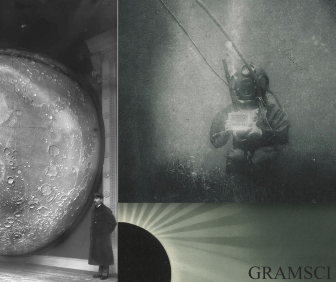
For those concentrating on just the single before them and maybe the follow-up, McLaney offered the longer view.
“I love artists who have a large body of work that once you discover them become these vast landscapes to explore,” he said.
“You might hear something from their mid-career which is great because then you have two directions in the timeline to explore and I find those artistic trajectories fascinating.
“Like if you come to Bowie on Scary Monsters, the albums either side of that are SO different. What you hear is an artist's relationship to their craft evolving; shifting, hopefully improving and with the ultimate goal being their own place in the firmament.
“I’ve always wanted to achieve a body of work, that to me is the point.”
At the time of this writing McLaney is recording the seventh album under the name Gramsci, his project which began in 2000 with the album Permanence and then offered Object (2002) and Like Stray Voltage (2005), all on CD.
After a lengthy hiatus in which he explored other music, collaborations and recordings under his own name, Gramsci re-emerged with Inheritance (2020), then last year The Hinterlands and the ambient soundtrack material In Formation: A Shift in Prospects (to accompany the short film T/HERE by Richard Bell which used Hinterland songs).
These three appeared on vinyl.
As a measure of how carefully McLaney curates his catalogue he is soon reissuing on vinyl In Formation in a cover more in keeping with the others under the Gramsci name and has recently released – for the first time on vinyl – those first three Gramsci albums, remastered by longtime producer/friend/collaborator David Holmes and in new, broadly themed covers of archival photographs.
We consider them here and note the new cover images
.
Permanence (Diver image by Louis Boutan, 1899)
The Gramsci debut, now with the previously hidden final track Waiting for the Dream to End on the CD credited on the vinyl edition.
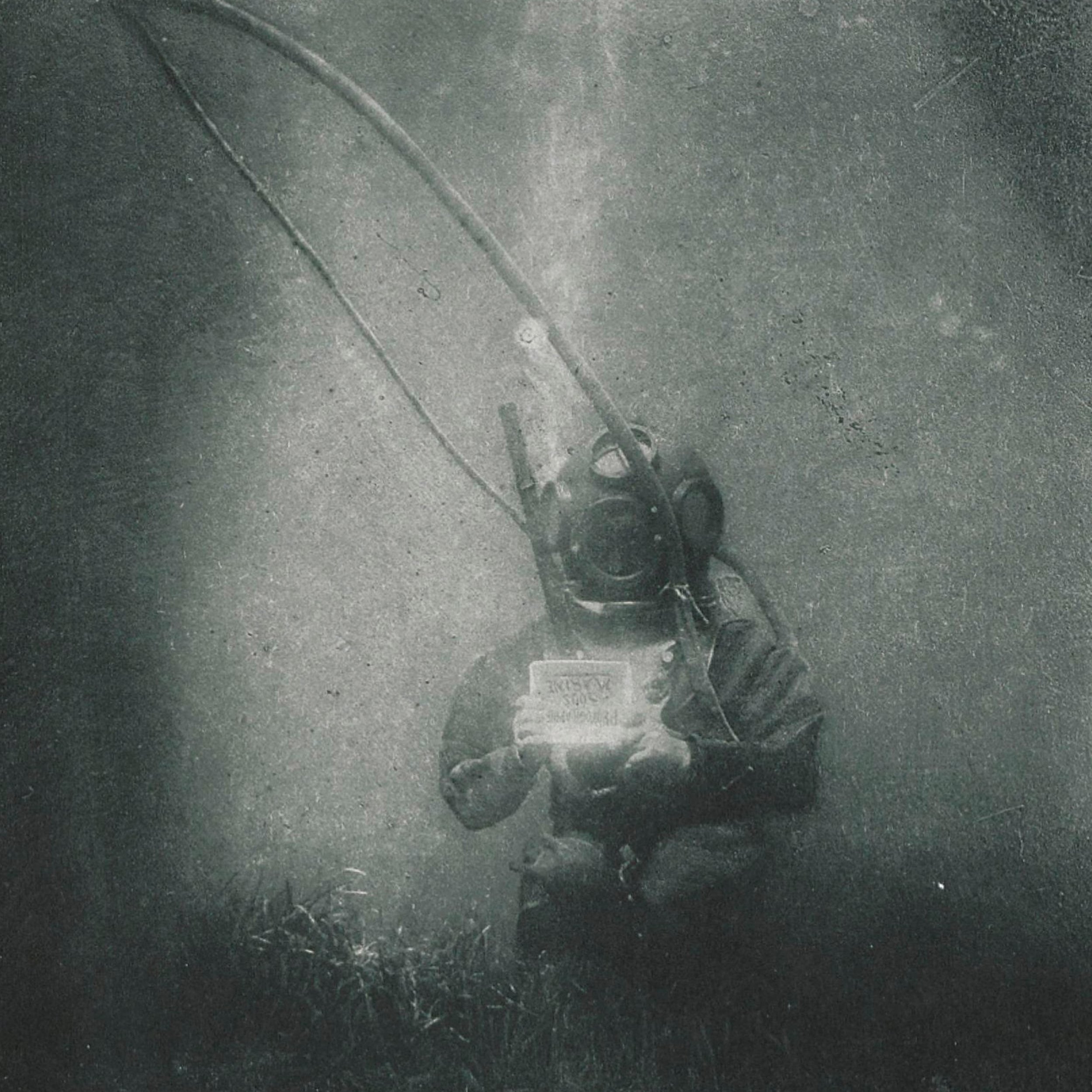 By his own admission this first outing as Gramsci – with Holmes –was a tentative exploration into the world beyond his singer-songwriter persona as on his previous albums.
By his own admission this first outing as Gramsci – with Holmes –was a tentative exploration into the world beyond his singer-songwriter persona as on his previous albums.
But with the beats, loops and choral effects on the opener One Star Awake, the announcement of something different sounded confident enough, although the decades since have rendered it more familiar than it was at the time (although he concedes the David Grey references reviewers made).
McLaney's gift is a deep and sometimes menacing but oddly reassuring voice, as on Let It Go which opens with lines from PIL's Rise: “I could be wrong, I could be right” and concludes “but you know I'm right”.
There is slashing fury on For the Asking, a maelstrom of thrashed acoustic guitar and aural desperation (“I'm sinking fast, please throw me a line”), but Masonry Angels which follows and closes the first side is a thoughtful Anglo-folk acoustic ballad which reflects back to former type.
Elsewhere is the moody Give Me Strength (the link between Bono and Orbison), the loop-riding Complicated and the arresting Still Waters underpinned by martial drums and repeats the phrase “no surrender possible”.
In his Herald review of the original CD Russell Baillie rightly observed “there are edgy, electronic Bowie-ish things happening on both Still Waters with its martial beats and on the noisy hidden track, possibly called Waiting for the Dream to End”.
There's a sense here that sometimes McLaney is also trying – perhaps too hard, as on Easy – to engage with the threads of hip-hop and digital technology.
But as the first album – “simply great” concluded Baillie – on the way to building a body of work under the Gramsci imprimatur, it is an interesting and welcome beginning.
As he says on Complicated, “If there ever comes a time I finally succeed in trying I'll let you know”.
That success with Gramsci would come soon enough.
You can hear and buy this album on vinyl at bandcamp here
.
Object (Moon model by Johann Friedrich Julius Schmidt, 1898)
With Take What You Have Gathered From Coincidence retitled A Waste of Time for the vinyl edition, Object was a more determined move into the atmospheric opportunities of the studio and electronica (as on the ambient miniature Architecture, the spaciousness of the opener Collision).
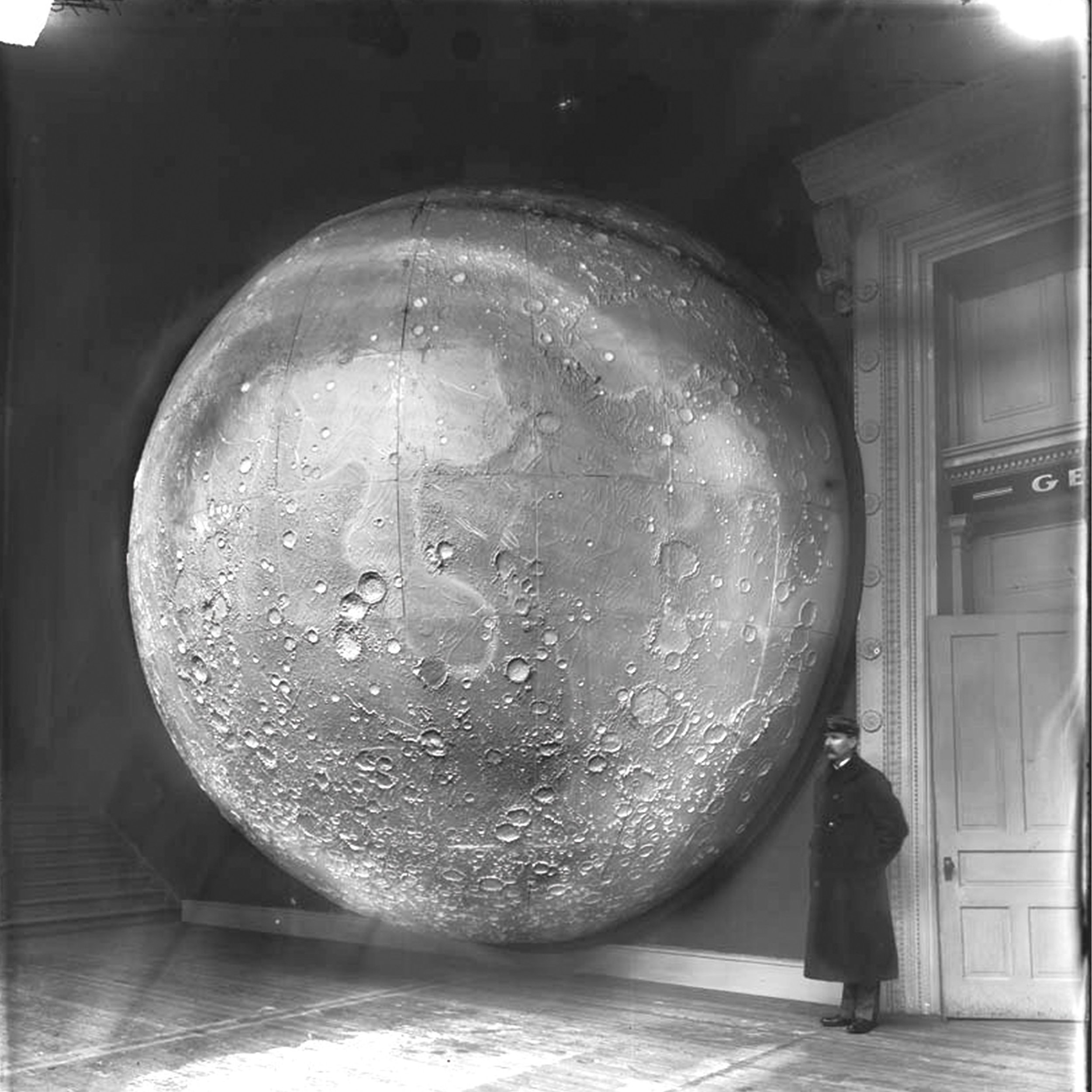 If it loses something of McLaney's vocal personality and breadth in places because of its whispery dark and brooding attitude, it certainly shows Holmes as an assured sonic choreographer into which McLaney performs.
If it loses something of McLaney's vocal personality and breadth in places because of its whispery dark and brooding attitude, it certainly shows Holmes as an assured sonic choreographer into which McLaney performs.
The multi-tracking of vocals and scratchy samples of Beautiful Life again recall Bono at his most studied and gospel-influenced and the major piece is the ambitious, seven minute-plus Constantinople – aiming for the heft of a prog-rock album-track epic – where that city at the crossroads of East and West is the metaphor for the great divide in a relationship.
If Permanence was the first step into a different form, Object showed McLaney and Holmes the strengths and weaknesses of their approaches.
But when it worked – the disconcerting setting of the excellent Day to Day, This Ain't a Love Song, Constantinople – it pays off handsomely.
Next time they would get it just right, and they did.
You can hear and buy this album on vinyl at bandcamp here
.
Like Stray Voltage (Sun eclipse by Trouvelot Etienne Leoplold, 1878)
It's ironic that this mighty album with heroic rock songs and fury should be the one to gain Gramsci the long overdue attention, but also be their final for 15 years.
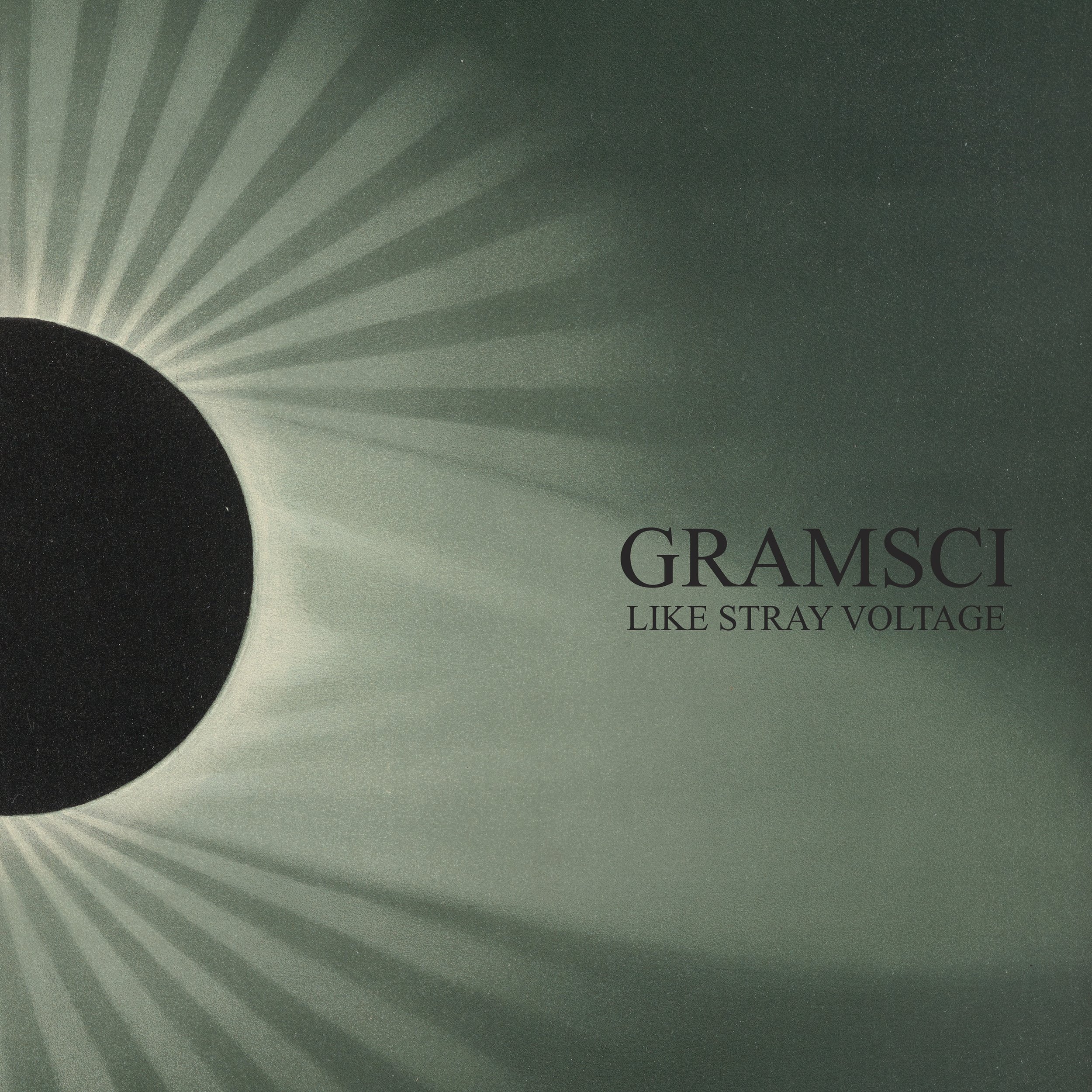 This was great, sky scaling rock (“ready to take it all” as the opener Fall to Earth announced) of sophisticated dynamics and more than one critics spoke in terms of “stadiums”.
This was great, sky scaling rock (“ready to take it all” as the opener Fall to Earth announced) of sophisticated dynamics and more than one critics spoke in terms of “stadiums”.
With a large but cleverly deployed cast alongside multi-instrumentalists McLaney and Holmes – including drummers Jasper De Roos and Jason Tamihana David Johnston (drummer for Jakob), bassist Mareea Paterson and string and brass players – Like Stray Voltage sounded like one of those formative prog-rock albums in McLaney's autobiography.
Metro said of it, “a much more grandiose concoction that captures the kind of high drama associated with U2 or The Doors at their mighty best but remains tightly controlled, never lapsing into overweening caricatures that high drama often encourages. Highly recommended.”
Critics name-checked Bowie and U2 again and if a few thought it overwrought, the consensus was very much that this was the album on which Gramsci's time had come. Even the short songs sounded imbued with grandeur.
It would be another 15 years before it would come again, but that next installment on Inheritance sounded like no passage of time had passed and was part of the continuum.
You can hear and buy this album on vinyl at bandcamp here
.
The three recent vinyl reissues are available through JB Hi-Fi stores in New Zealand here.

Paul McLaney's website for Gramsci is here


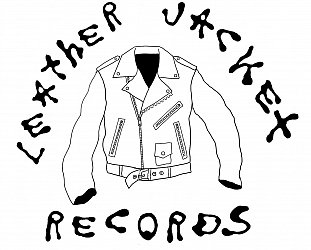

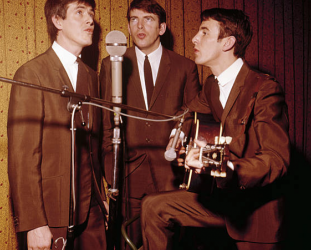
post a comment